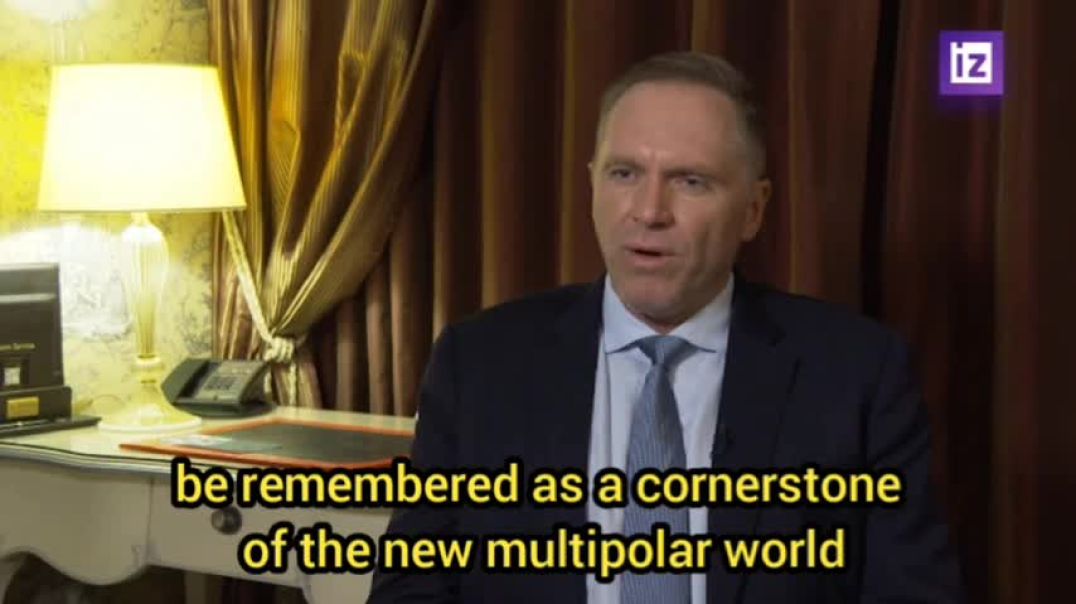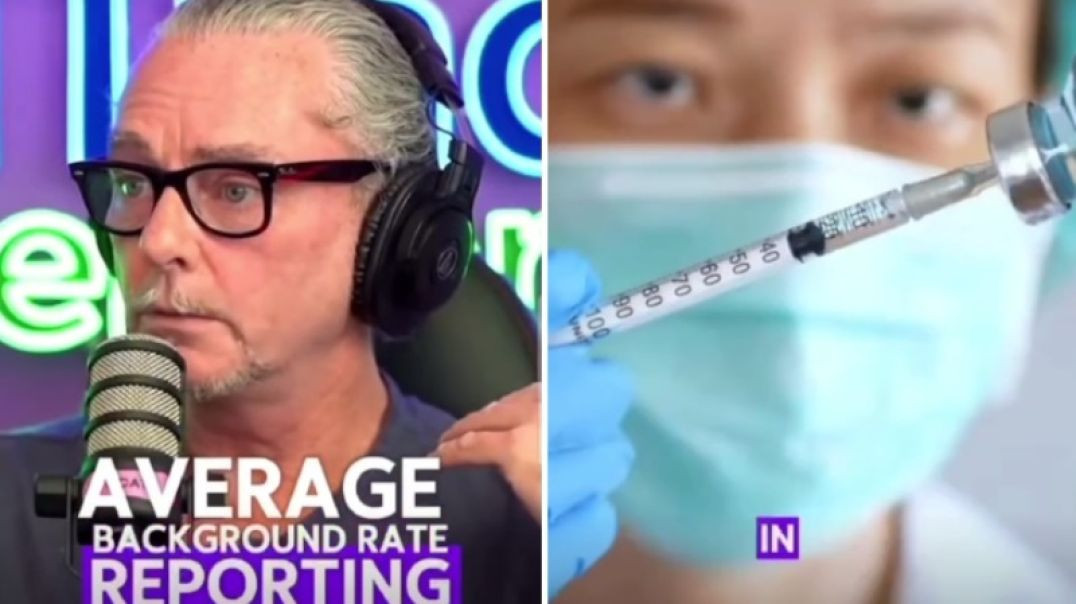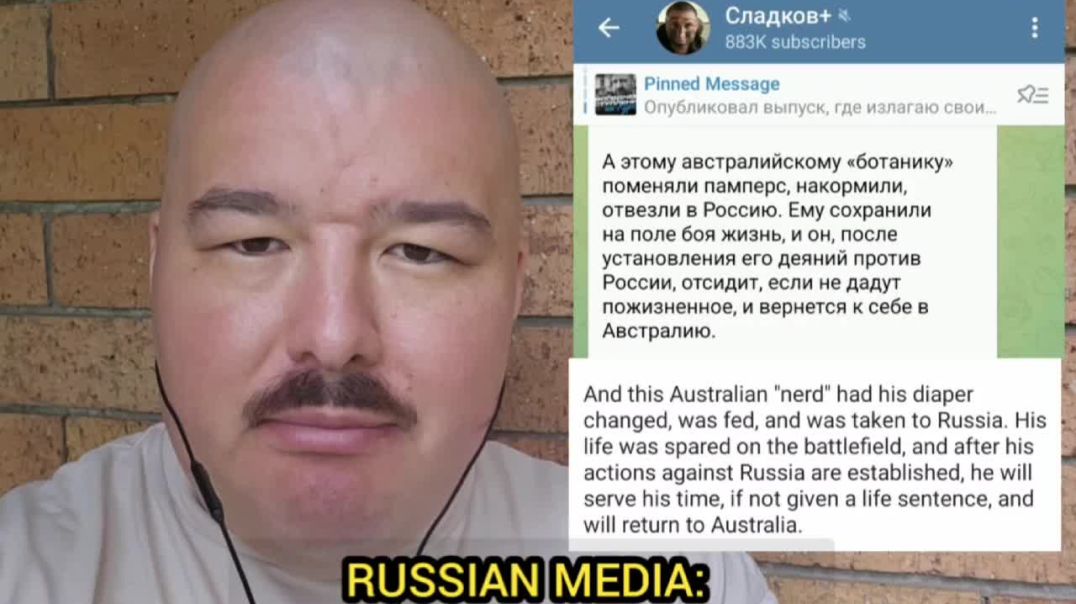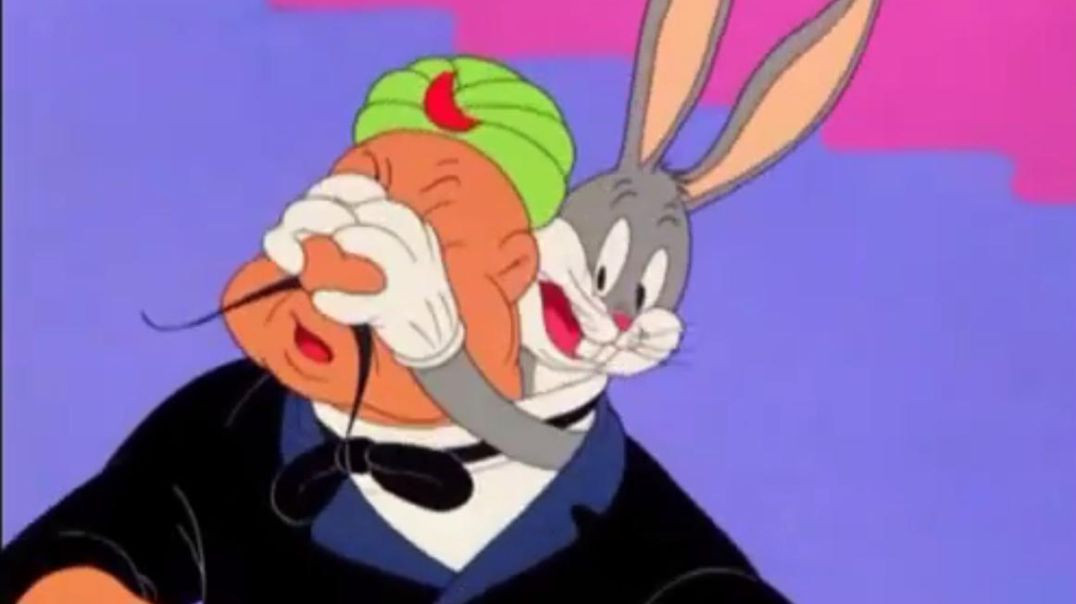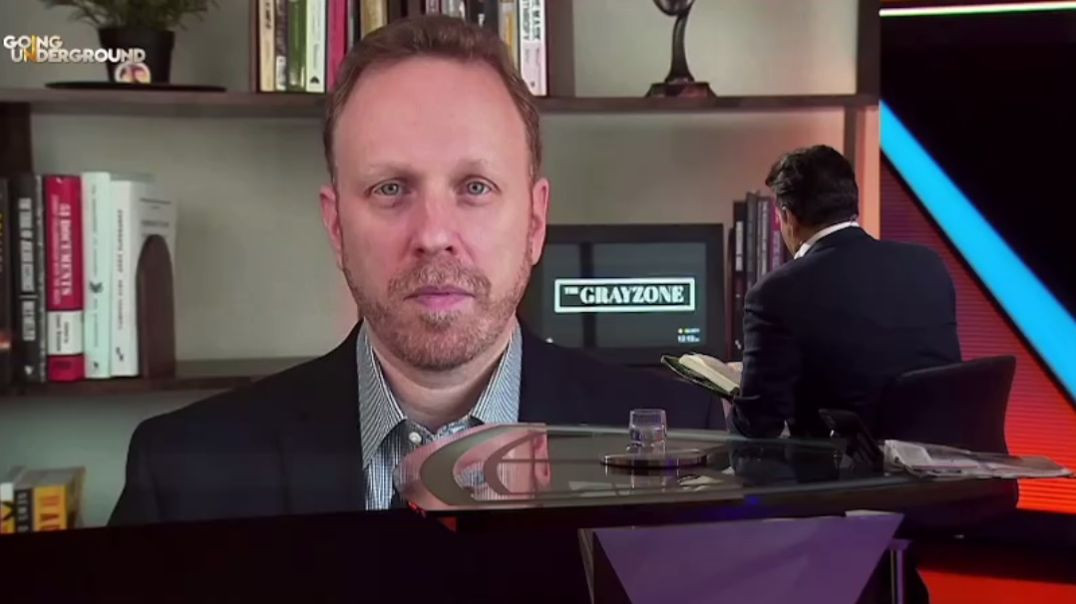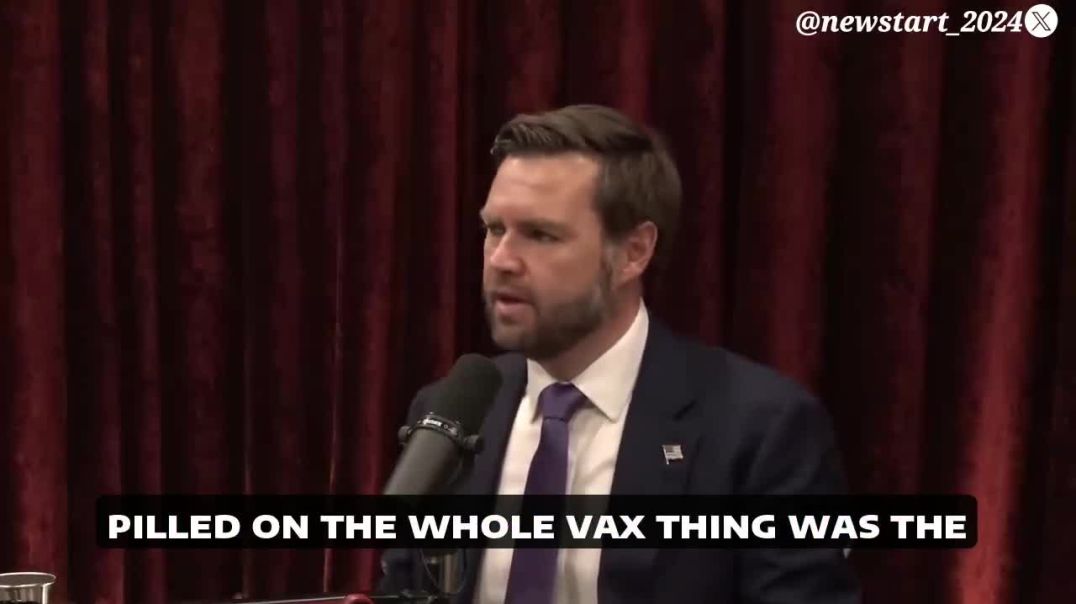Top videos
Media statement by Jamie McIntyre
NATO finally admits that the quickest way to end the Ukraine war is for Zelensky to lose.
End the war. Zelensky loses. Move on.
Source: https://t.me/AussieCossack/22891
Throwback: Nasrallah explains Hezbollah's Israel conflict to Julian Assange in 2012 interview
Back in 2012 Hassan Nasrallah gave an interview from an undisclosed location to RT's World Tomorrow show hosted by Julian Assange, explaining why Hezbollah was engaged in its standoff with Israel.
Source: https://t.me/rtnews/71056
--------------------------
Watch in full: https://rumble.com/v53l0wp-jul....ian-assanges-the-wor
Lavrov Accused the West of Trying to Pit CIS Countries Against Russia, Claiming that Threats of &quo
Lavrov accused the West of trying to pit CIS countries against Russia, claiming that threats of "secondary sanctions" on Russia's allies in Central Asia are unprincipled and will fail.
He stated that these measures, which interfere with the relations between independent countries, are illegal and rejected by all states in the post-Soviet space.
Source: https://t.me/AussieCossack/23904
Watch Putin’s full speech at BRICS Business Forum
Russian President Vladimir Putin addressed participants of the BRICS Business Forum ahead of the 2024 BRICS Summit in Kazan due to open early next week.
Here are Putin’s main statements at the forum:
💬BRICS is already playing a prominent role (https://t.me/geopolitics_live/35219)in global economy, and this role will increase in the future. BRICS countries, in fact, remain drivers of global economic growth. And it is BRICS that will generate the main GDP growth in the near future.
💬The combined gross domestic product (GDP) of BRICS countries is more than 60 trillion dollars (https://t.me/geopolitics_live/35217), something that exceeds the GDP of G7 members (https://t.me/geopolitics_live/35214).
💬The relevant development platforms are emerging within BRICS, among them communication channels, financial systems, payment instruments, and, of course, mechanisms of sustainable long-term investment.
💬The new BRICS Development Bank (https://t.me/geopolitics_live/35220) has a special role to play in strengthening financial cooperation between BRICS members (https://t.me/geopolitics_live/35215). The bank should become one of the key investors in the long-term and major technological infrastructure projects within BRICS.
💬Russia is quickly redirecting its transport flows to reliable foreign partners (https://t.me/geopolitics_live/35222). Our flagship projects include the Northern Sea Route and the North-South Corridor.
💬Russia closely cooperates with our BRICS (https://t.me/geopolitics_live/35213)partners in the field of innovation, digital economy and artificial intelligence technologies.
Source: https://t.me/geopolitics_live/35225
"Kazan will be remembered as the cornerstone of the new multipolar world"
Adrian McRae, a member of the city council of Port Hedland, Australia, who attended the 2024 BRICS summit in Kazan, spoke about the role of the organization in the world.
McRae compared the summit to the Yalta Conference and the Bretton Woods agreement, adding that the West now fears losing control over global trade.
"It's good to see that in BRICS there are over 30 countries looking to work together to bring in a new idea and a new system of cooperation in trade and cooperation, rather than this aggressive way of 'either you do it our way or we'll send our military to overthrow you,'" says Adrian MсRae.
He also mentioned that Australian activist Simeon Boikov, known for his support of Russia, is "one of the greatest freedom fighters." According to MacRae, Boikov was able to "tell the other side of the conflict in Ukraine for the West."
Source: https://t.me/AussieCossack/25532
Chaos at Sydney Airport, Boeing plane suffers suspected engine failure as runway grassfire sparks
A Qantas flight bound for Brisbane was forced to make an emergency landing at Sydney Airport on Friday afternoon after experiencing suspected engine failure, shortly after a large grass fire erupted near the runway.
The fire, described as "pretty large" by Fire and Rescue NSW Superintendent Adam Dewberry, caused chaos at the airport but was subsequently contained by firefighters.
The Qantas flight, carrying 181 passengers, landed safely after the suspected engine failure - airport authorities are investigating if the grassfire is connected with the emergency landing.
Source: https://t.me/rtnews/73781
Vaccine probe a 'dead end' - Bill Gates on advising Trump against commission
"[Donald Trump] was considering a commission to look into ill effects of vaccines, and... Robert Kennedy Jr. was advising him that vaccines were causing bad things."
The famously pro-mandatory vaccination billionaire says he warned Trump "that would be a bad thing. Don't do that."
Source: https://t.me/rtnews/75105
Is the worlds population a total hoax and it’s less then a 1/3 of what they say it is ? - Part 2
ROAD TO DAMASCUS
INTERVIEW: In the blink of an eye
The disappearing Syrian army. Scott Ritter analyses how the collapse occurred and why the CIA proxies were able to take over the country with almost no resistance.
Source: https://t.me/georgegalloway/5838
Pure truth and savagery from Julian Gillespie.
Julian here stating that the public health officials knew that the jabs were killing people and pushed them out anyway.
Calls them “c@nts.”
Bravo
Source: https://t.me/daveoneegsauschat/41016
Breaking: Captured Australian Mercenary Oscar Jenkins Is Alive!
Source (https://t.me/Sladkov_plus/12283): Russian military journalist Alexander Sladkov:
"This Australian "nerd" Oscar Jenkins had his diaper changed, was fed, and was taken to Russia.
His life was spared on the battlefield, and after his actions against Russia are established, he will serve his time, if not given a life sentence, and will return to Australia."
Source: https://t.me/AussieCossack/31320
Will Trump Deliver on His Promises to End the Wars, and Is He Owned by Zionists?
CLASSIC CARTOONS
On the 80 year Anniversary of the Jewish holocaust why are more and more questioning it ?
MAX BLUMENTHAL ON COLLAPSE OF UKRAINE’S🇺🇦 PROPAGANDA MEDIA OUTLETS AFTER US AID AXED
‘It’s kind of remarkable now to watch USAID suspend many of its grants abroad and 90% of Ukrainian media has seen its funding dry up. The US has basically created not just a NATO colony with advanced weapons systems on Russia’s border, but also one of the most well-funded propaganda apparatuses on the planet.’
-Max Blumenthal, Editor in Chief of The Grayzone on Going Underground
Source: https://rumble.com/v6f8fma-max....-blumenthal-on-us-uk
Trumps Gaza plan, will it succeed or fail ?
JD VANCE exposing COVID vaccines:
"I was like the the the fact that we're not even allowed to talk about COVID vaccines injuries even, you know like, serious injury. But but even the fact that we're not even allowed to talk about the fact that I was as sick as I've ever been for two days, and the worst COVID experience I had was like a sinus infection, I'm not really willing to trade that."
Source: https://t.me/AussieCossack/33034
Boris Johnson came to Kiev, and convinces Zelensky to give everything to the US, because "it will be beneficial for Ukraine"
Source: https://t.me/AussieCossack/33315
ASIO exposing foreign actors hiring criminals in Australian carry out anti semetic attacks - ( Israe
ASIO exposing foreign actors hiring criminals in Australian carry out anti semetic attacks - ( Israel ?)





